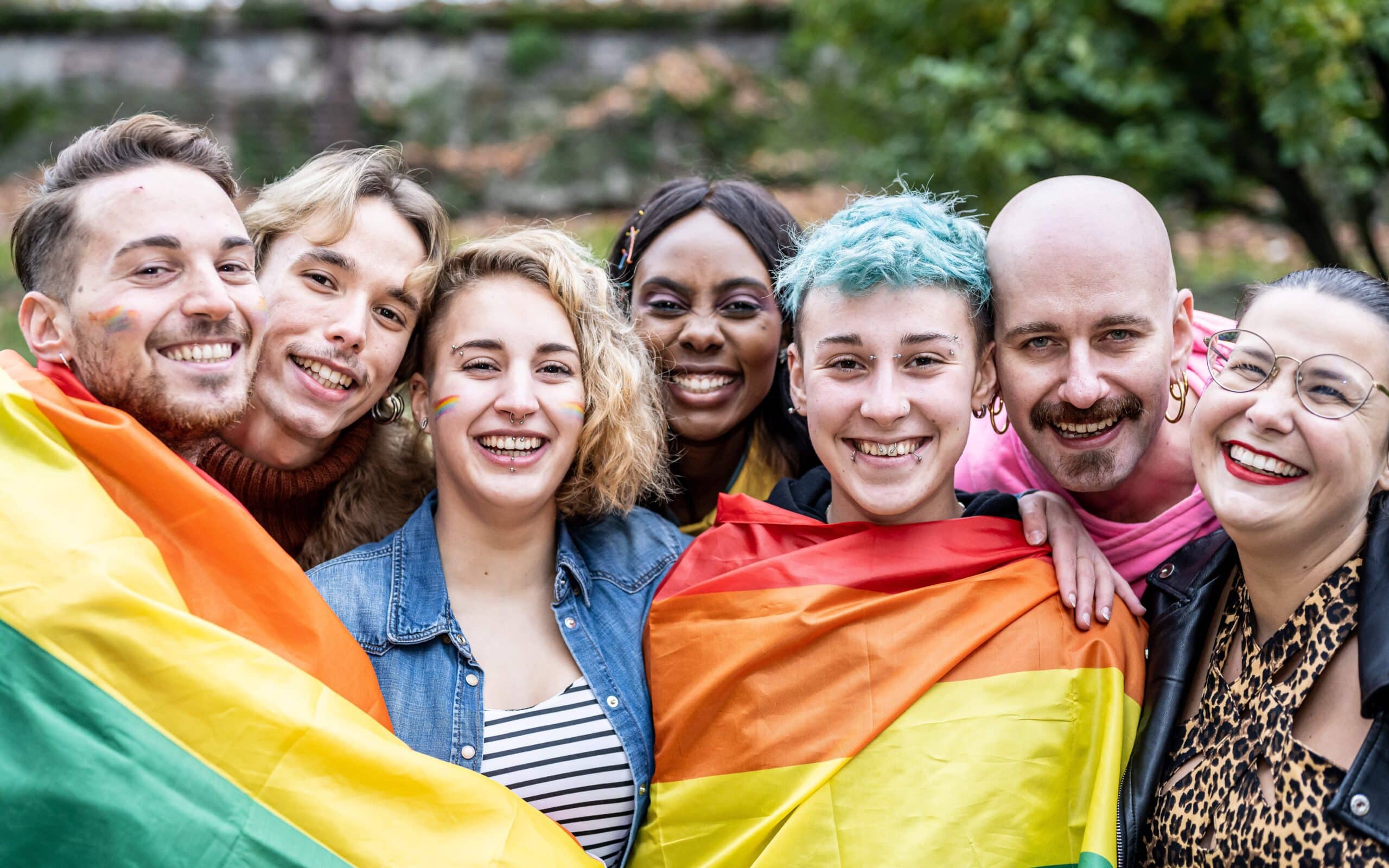
Meaningful discussions of LGBTQ+ and addiction must address the unique challenges faced by members of this community, including risk factors for substance abuse and obstacles to effective care.
According to a June 2023 report from the Substance Abuse and Mental Health Services Administration (SAMHSA), about 32% of gay men, bisexual men, and bisexual women had a substance use disorder (addiction) in the previous year. For lesbian women, the past-year prevalence of addiction was about 26%.
Additional findings related to LGBTQ+ and addiction in this report included:
An August 2021 review in the International Journal of Environmental Research and Public Health explored substance abuse and addiction among transgender adults. That review, which involved an analysis of 55 prior studies, revealed the following:
In many (but not all) cases, rates of substance abuse and addiction among members of the LGBTQ+ community are higher than among straight and cisgender individuals in the same age ranges. This, understandably, has led to questions about the reasons for this apparently stronger connection between LGBTQ+ and addiction.
There are no comprehensive, universally agreed-upon responses to these question – but experts have identified a number of factors that contribute to differing experiences with substances between LGBTQ+ and straight/cisgender adults. For example:
The following resources are designed for members of the LGBTQ+ community who need help for substance abuse, addiction, or related mental health concerns:
Also, in addition to the support services that they provide to all callers, the 988 Suicide & Crisis Lifeline has established a pilot program to meet the unique needs of LGBTQ+ individuals ages 25 and younger. People in this demographic group can access a specially trained counselor by:
Addictions and other behavioral health disorders don’t discriminate based on sexual orientation, gender identity, or other personal characteristics. However, as we noted earlier in this post, LGBTQ+ individuals who have developed substance use disorders often have needs that differ from straight/cisgender patients.
For members of the LGBTQ+ community, the treatment experience can be improved by features such as:
If you are member of the LGBTQ+ community and you have developed an addiction to alcohol or another drug, LA Detox can connect you with the comprehensive, compassionate care that you deserve.
We are committed to the safety and well-being of all who turn to us in times of crisis. Our team will work closely with you to review your history, discuss your specific needs and goals, and develop a customized plan just for you. Every step of the way, you will be in a safe and welcoming place among people who truly care about you.
To learn more or to schedule a free assessment, please visit our Admissions page or call us today.
How long does cocaine stay in your system – and why do some people test…
It’s a sweet, syrupy mixture that has been celebrated in rap music for decades. But…
Alcohol abuse can put a person at risk for a broad scope of serious health…
In certain circumstances, stimulants such as dextroamphetamine and Adderall can help a person experience improved…
SMART Recovery is an alternative to AA and NA for people who are looking for…
One of the side effects of abusing meth is a noticeable change in the individual's…
This website uses cookies.